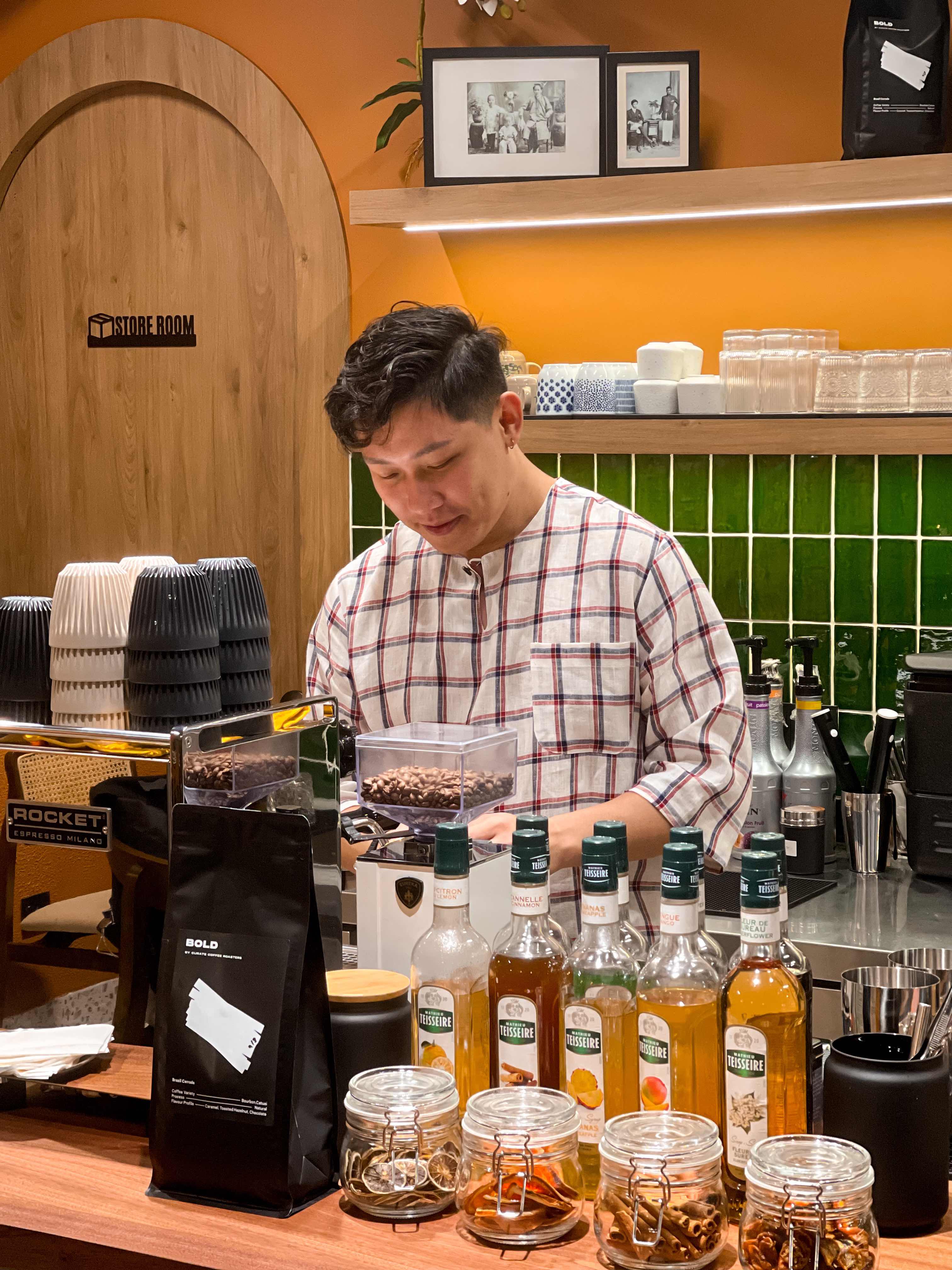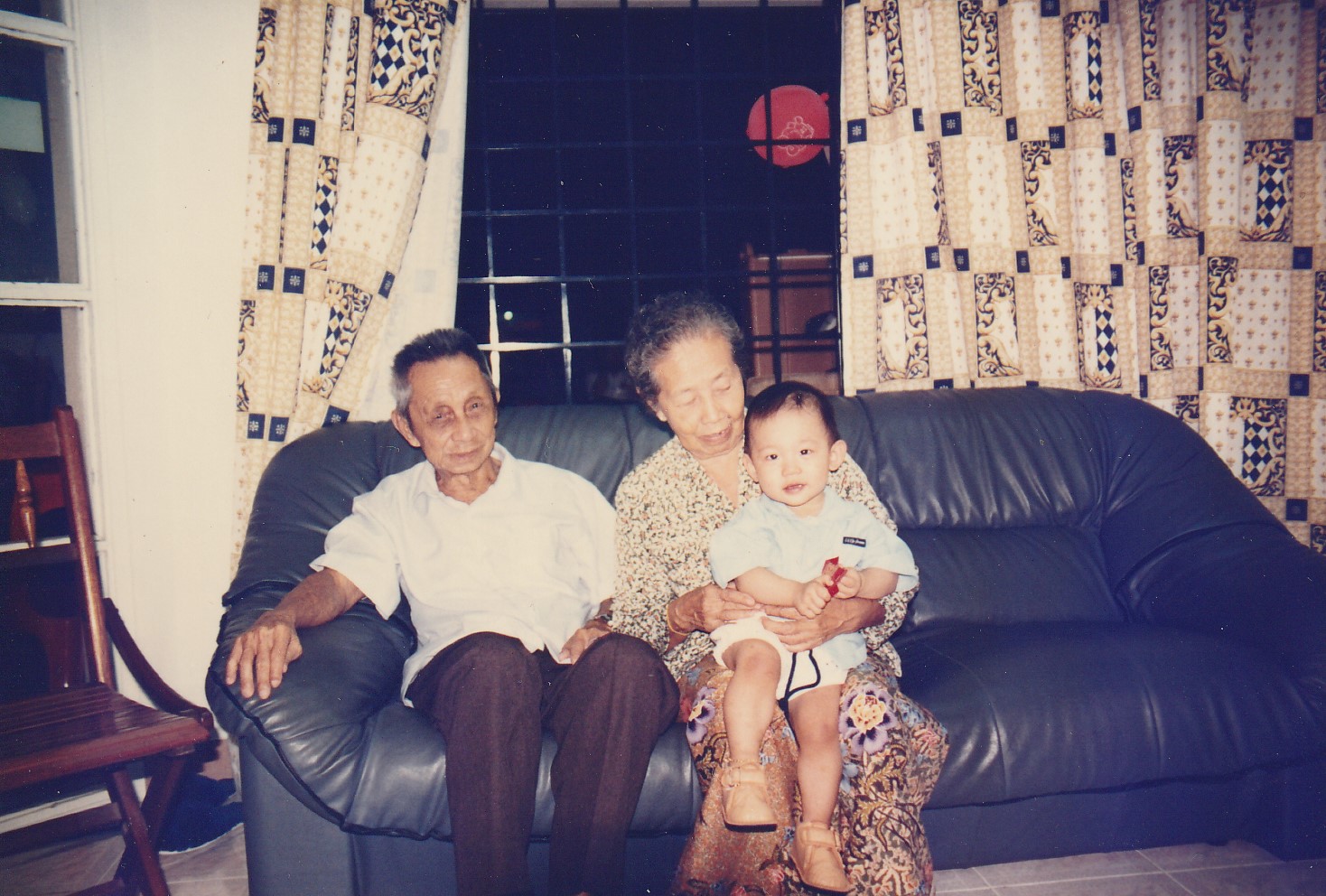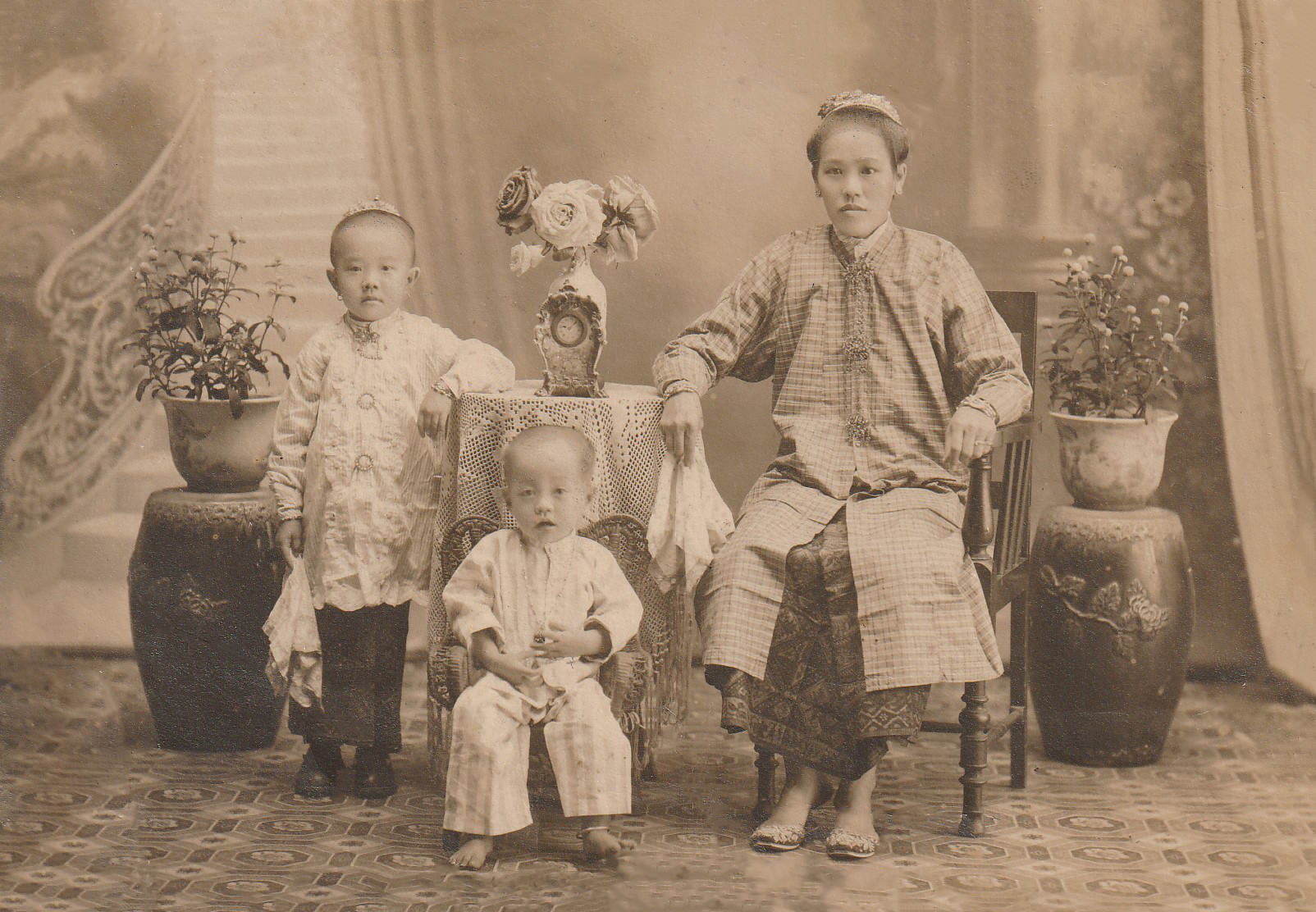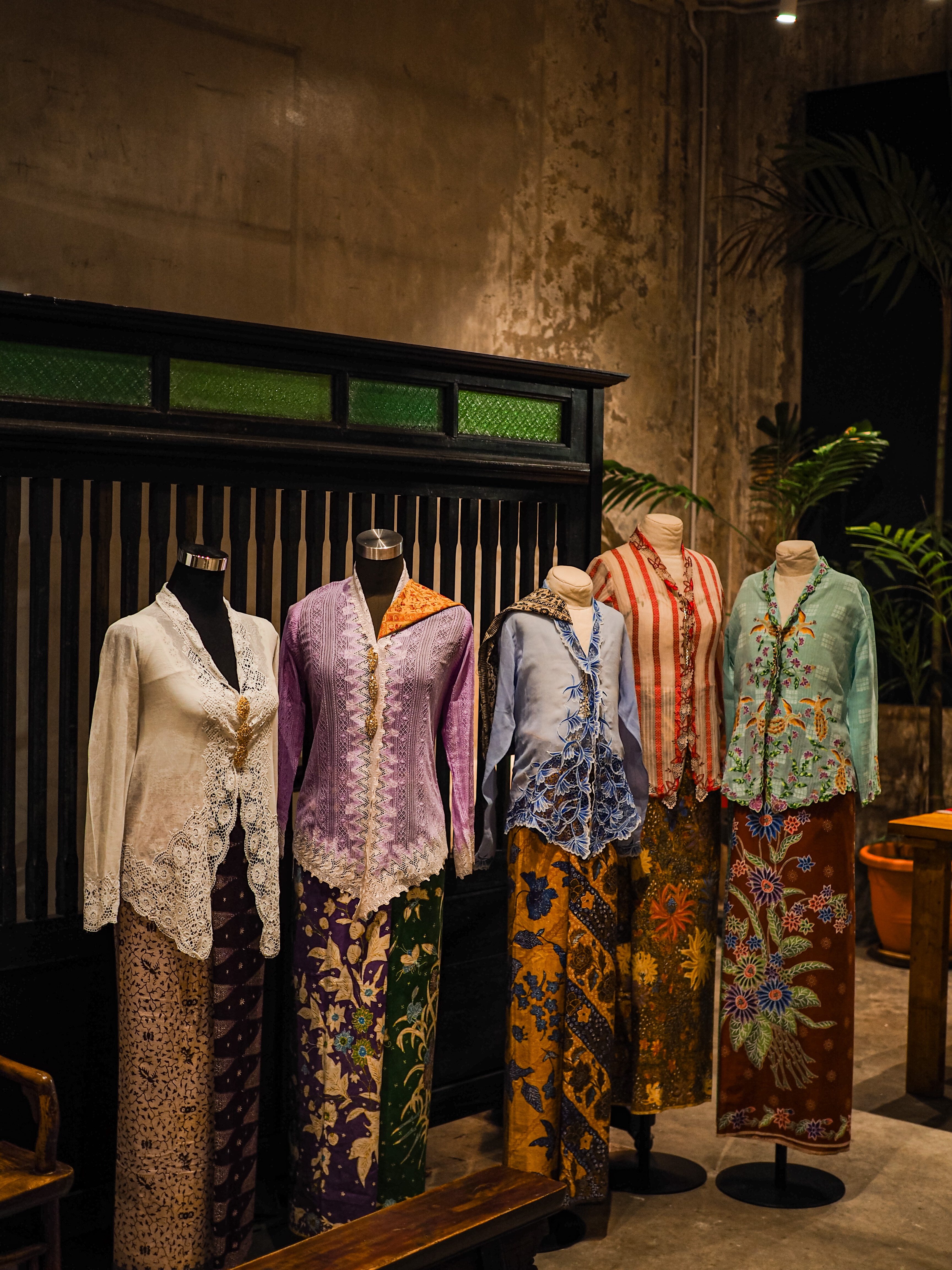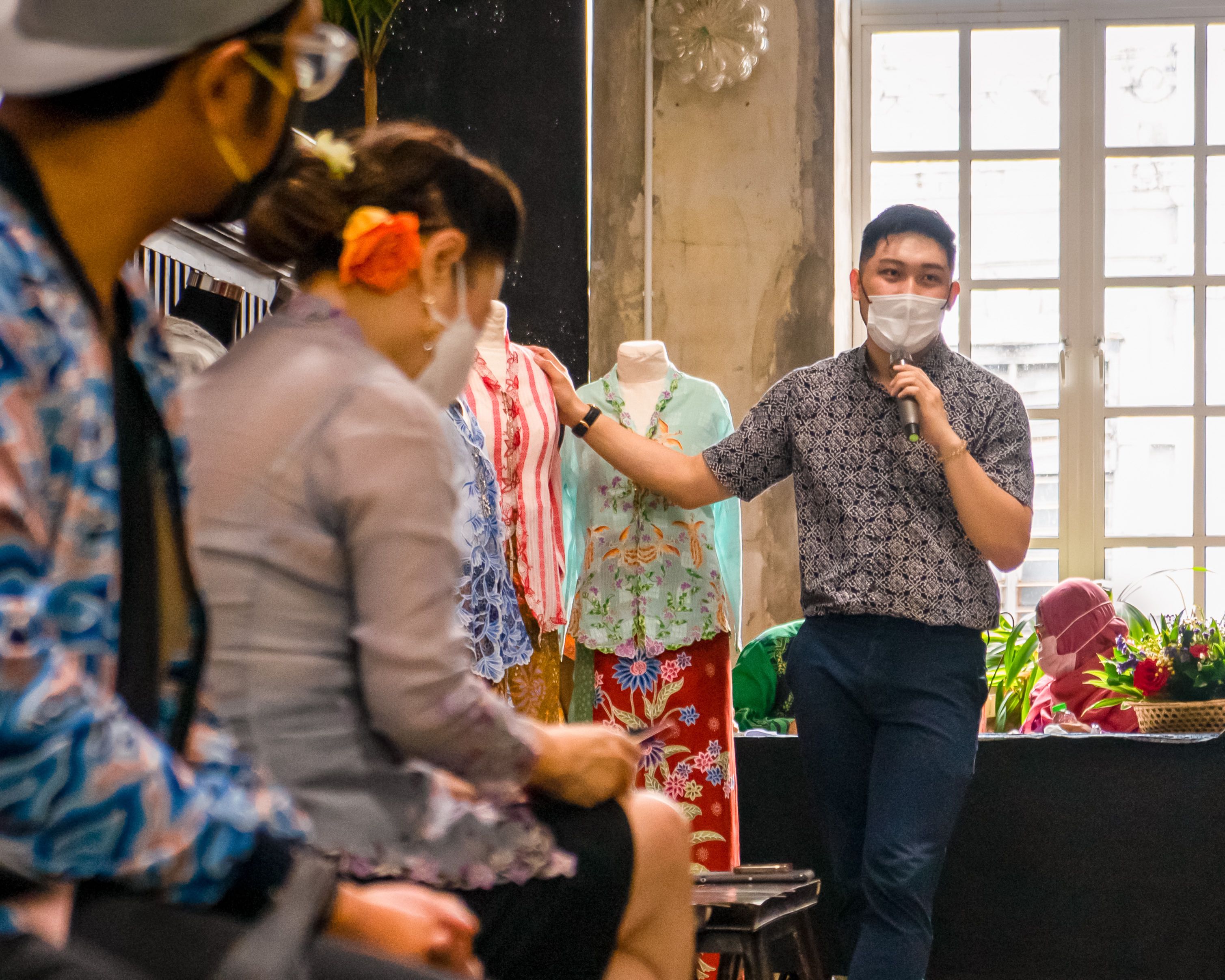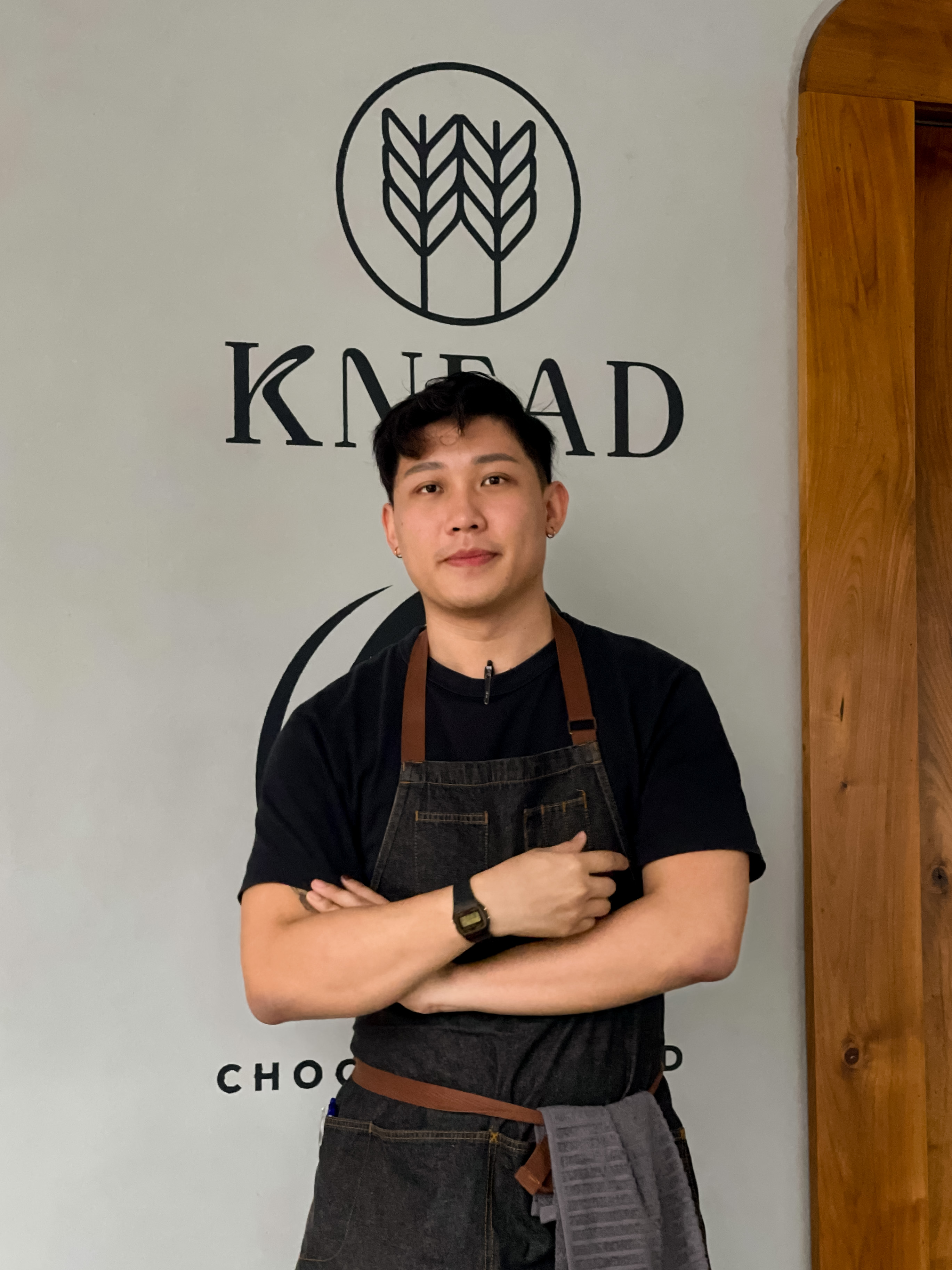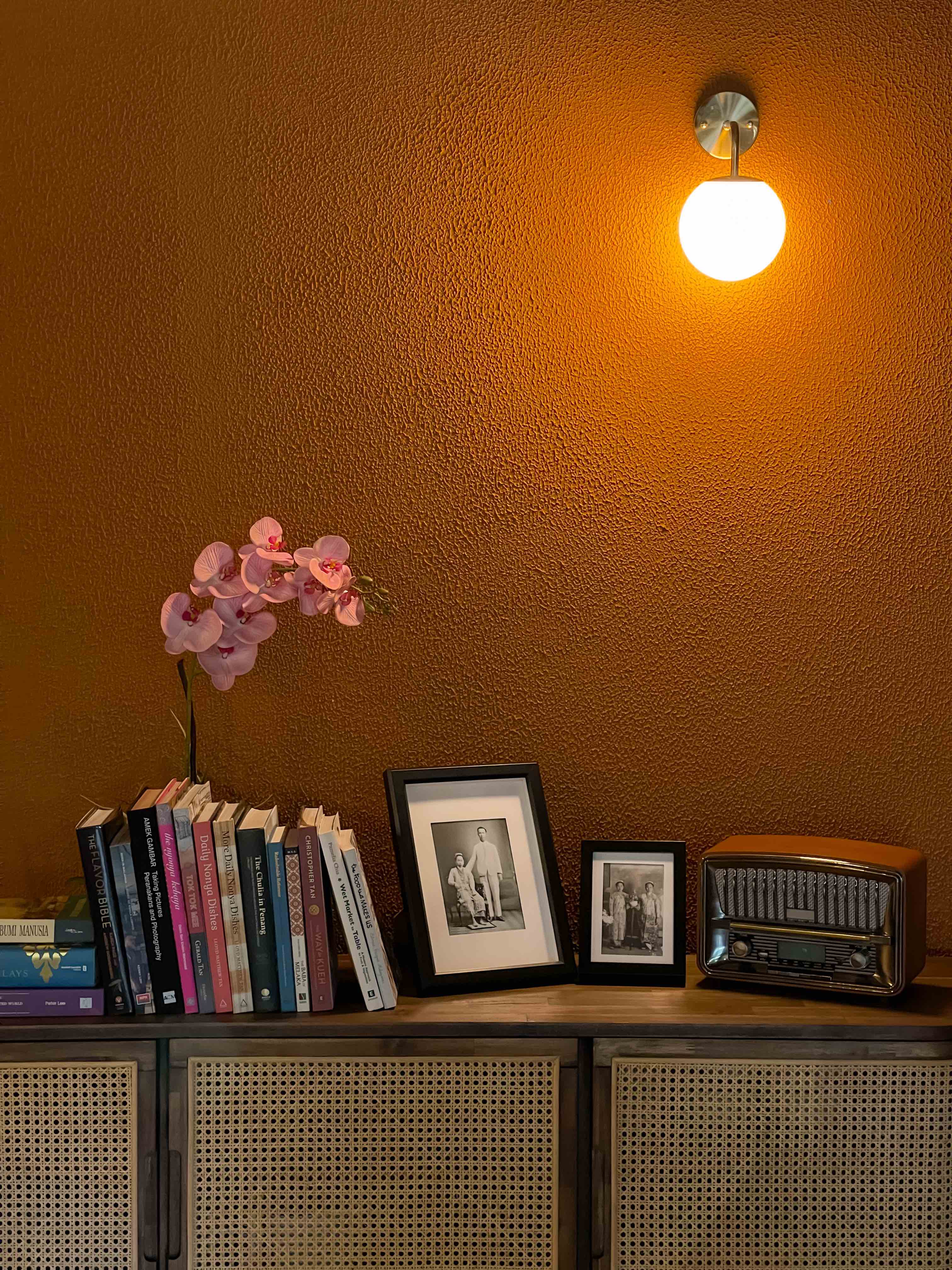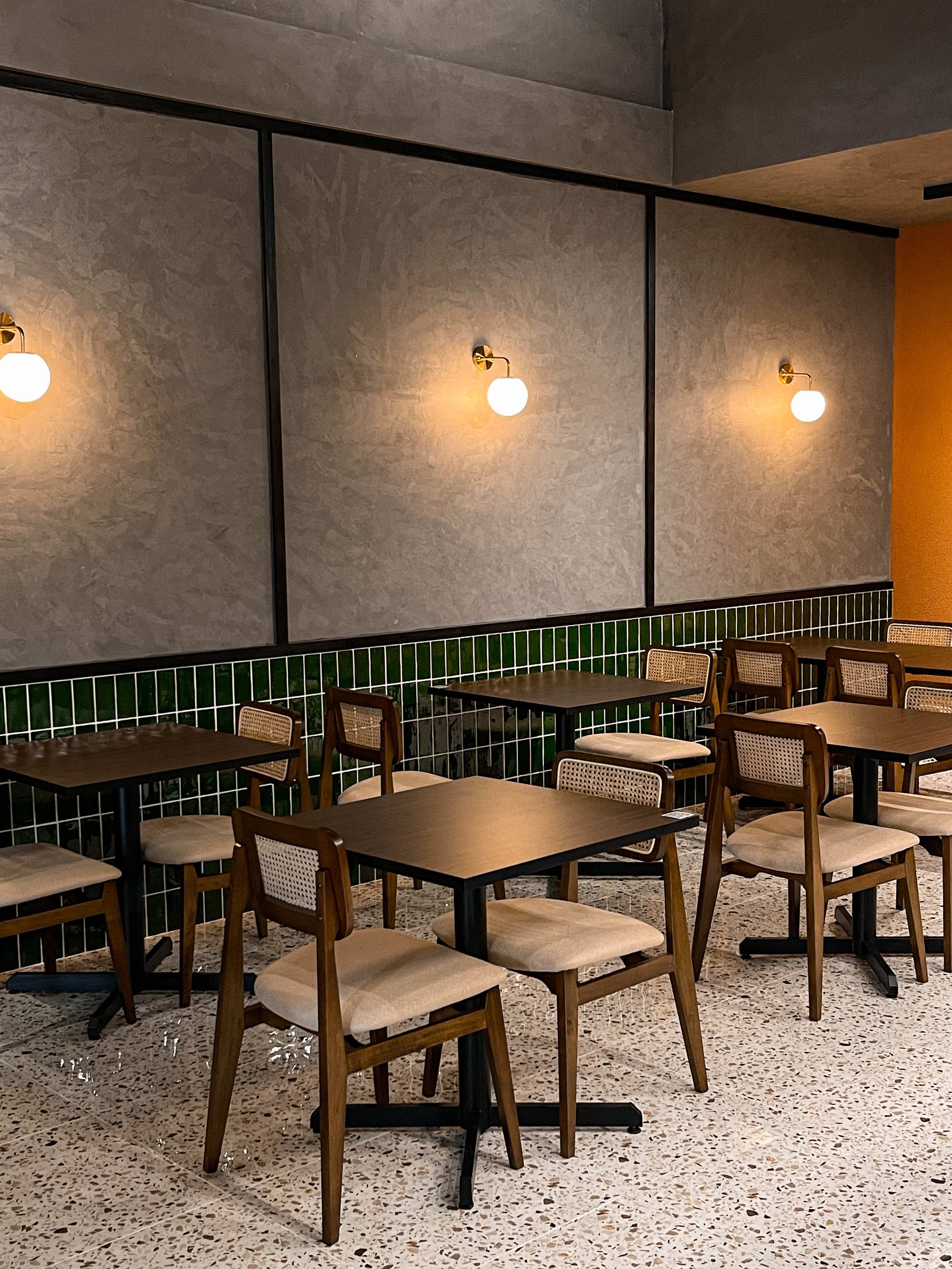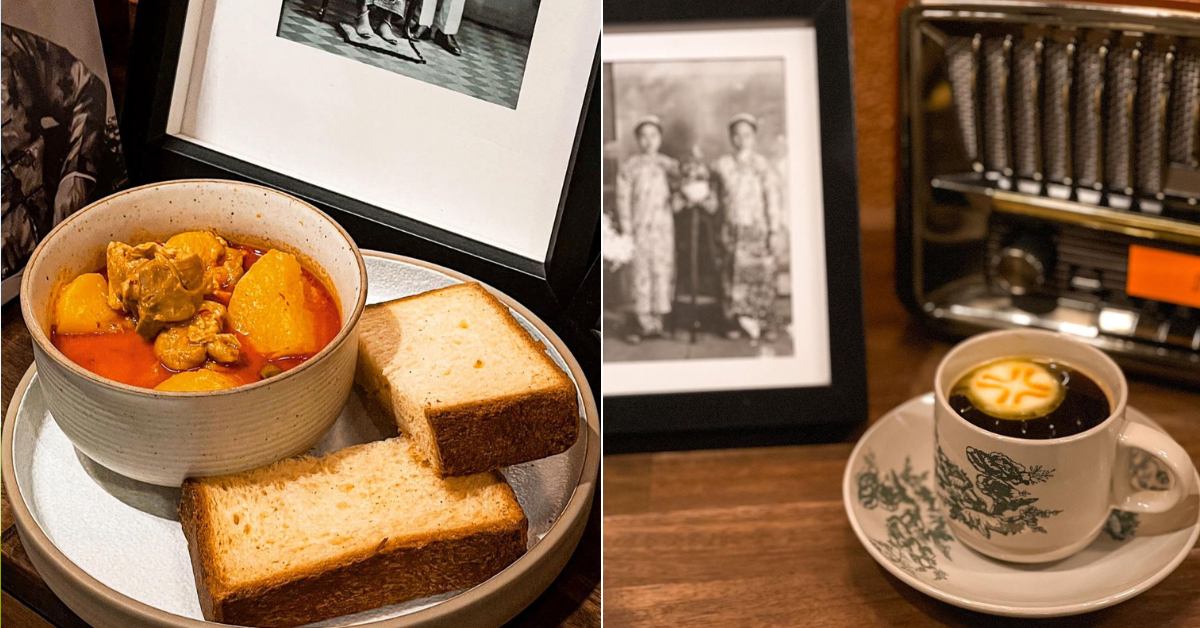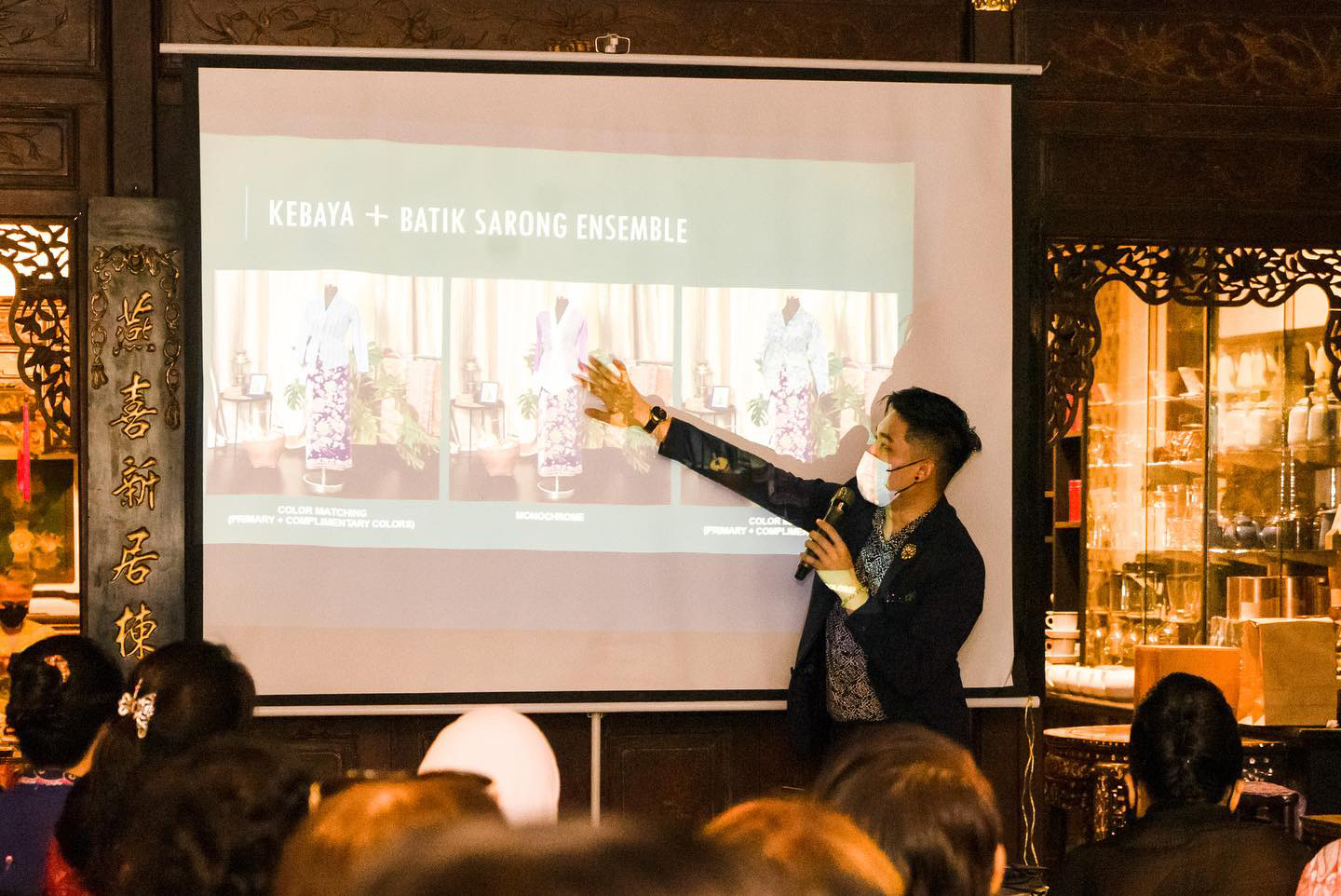27-Year-Old Malaysian Shares How He's Preserving His Chinese Peranakan Heritage
Sean Koay, who is of Chinese Peranakan descent, has been passionate about his heritage since secondary school.
Meet Sean Koay, a 27-year-old culture enthusiast and entrepreneur who is deeply passionate about preserving his Chinese Peranakan heritage
Both of Sean's parents are of Chinese Peranakan descent from Penang. Born in Singapore, but bred in Kuala Lumpur, Sean grew up speaking a mix of English, Malay, and Hokkien, one of the most common Chinese dialects in Penang.
However, as Sean lived in a city far away from his relatives in Penang, he never had full exposure to a Chinese Peranakan upbringing with Baba Nyonya adat and traditions.
"When you live in a cosmopolitan city, you don't really bother about culture. And there is no need to take it too seriously.
"My parents, like many others who were born in the '60s to '80s, were also brought up in a way where having a career was more important than anything else," said the 27-year-old in an interview with SAYS.
During his time in a Chinese vernacular primary school, Sean grew curious about his heritage, especially after learning that he could speak fluent Malay, unlike many of his Chinese friends
Sean was puzzled that he couldn't, at the very least, speak Mandarin like his Chinese friends, who also frequently conversed in Cantonese, a common Chinese dialect spoken in KL.
"I thought to myself, 'I'm Chinese though. Why can't I speak Mandarin?'
"Even when I was at my friends' place for lunch or dinner, the food served was different from what I would usually eat at home.
"I would eat heavy-on-the-tongue gravy dishes like tau yu bak (braised pork in dark soy sauce) and curry at home, whereas my friends usually ate lighter-tasting dishes," said Sean.
In secondary school, he started delving into his heritage, researching topics like the origins of the Chinese Peranakans and their historical contributions to British Malaya.
The culture enthusiast's commitment to preserving his Chinese Peranakan heritage flourished when his grandaunt passed him a stack of baju kebayas and batik sarongs that belonged to his late grandmother
From left: Sean's great-grandmother, great-granduncle, and great-great-grandmother.
Image via Sean Koay (Provided to SAYS)Sean and his family were busy clearing their family shophouse in Bukit Mertajam — built by his great-grandparents in the 1940s — which had to be demolished.
From thereon, Sean started collecting vintage baju kebayas and sarongs from his relatives, including those passed down by his great-grandmother, and began showcasing them during his sharing sessions at exhibitions, talks, and events.
Sean's collection of baju kebayas and batik sarongs that belonged to his relatives.
Image via Sean Koay (Provided to SAYS)"My first sharing session was for 'Culture Speaks History,' a talk that I did with a friend in 2017. I was 21 years old then. Everyone was quite surprised that I did a talk at that age. It was a free event, so many people attended it," he said.
Sean spoke about the different eras of baju kebayas, and how to pair the clothing piece with a batik sarong.
Fast forward to today, Sean still conducts sharing sessions from time to time. He also regularly posts about his heritage on his social media accounts.
Most recently, Sean found another way of showing his love for his heritage, which is through his café called KNEAD by CW
KNEAD by CW was launched during the Movement Control Order (MCO) in 2020. It kicked off as a pop-up stall selling baked goods and chocolates at KLCC and corporate offices, before becoming a micro-café at its HQ in Serdang.
Now, KNEAD by CW is a full-fledged café in Serdang Raya, serving up hot food, finger food, baked goods, and coffee from 11am to 7pm every Tuesday to Sunday.
Step into the café, and you'll find that its interior is a sight to behold, especially among culture and Baba-Nyonya enthusiasts. Every nook and cranny of the café is intricately designed with Chinese Peranakan and Straits Eclectic style in mind. There is even a gallery corner filled with information cards detailing the Chinese Peranakan culture.
"We had a lot of ceiling space to begin with. Me being me, I like to incorporate my interests in the things that I do, so I took the opportunity to design it in a way that resembles the Straits Eclectic houses in the Straits of Melaka.
"I want customers to feel like they are in a comfy home when they walk in, rather than feeling like they are at a bustling café," he enthused.
Sean also has big plans for his café. He intends to open KNEAD by CW for dinner in the future, where he'll serve authentic Chinese Peranakan dishes featuring his family recipes.
During MCO, the entrepreneur began experimenting with his family recipes, which led to the launch of The Straits Dapur, which aims to preserve his family recipes.
As part of a collaboration with The Straits Dapur, KNEAD by CW recently featured a special Peranakan dish known as 'Kari Kapitan', available for a limited time.
"I also want to serve Chinese Peranakan food in a way that's not intimidating. A lot of people think that Chinese Peranakan food is expensive, so I want to have that approach where it's not intimidating and expensive to experience Chinese Peranakan food," he said.
When asked to name three things that are distinctly Peranakan, Sean shared that it's the food, the language, and the attire
"Food has always played a very important part in my family. Whenever I'm with my external relatives, we always talk about food. We would always reminisce about how our grandmothers and great-grandmothers used to work in the kitchen.
"Chinese Peranakan food has ingrained a lot of values in our everyday lives," said Sean.
As for the language, Sean shared that Chinese Peranakans in Penang speak a lot of Hokkien, with a mix of Malay words. Meanwhile, the Chinese Peranakans in Melaka use more Malay and less Hokkien in their sentences.
On top of his plans for KNEAD by CW, Sean revealed that he is currently writing about the Chinese Peranakan culture for a publishing paper, and hopes to contribute many more informative pieces in the future
"I also want to do more content in terms of Penang Peranakan food, but that's still in the planning phase," he said.
When asked about his opinion on the importance of preserving one's culture and heritage, he shared that a lot of Malaysians carry misunderstandings and misconceptions about not only their culture, but also each other's culture.
"There is so much diversity in Malaysia, but we are not informed and educated correctly about each other's culture. For example, for the Chinese, we have Hokkien, Hakka, and Cantonese, with their own dialect groups. Within these dialect groups, there are various traditions too! Even among the Malay communities, there are various ethnicities and practices based on the states or their ethnic origins too.
"But because of our society, there is no proper emphasis placed on learning about each other's culture. That's why it's important for me and a lot of people to create a platform for us to share and educate the public about our culture and heritage as accurately as possible," he said.
